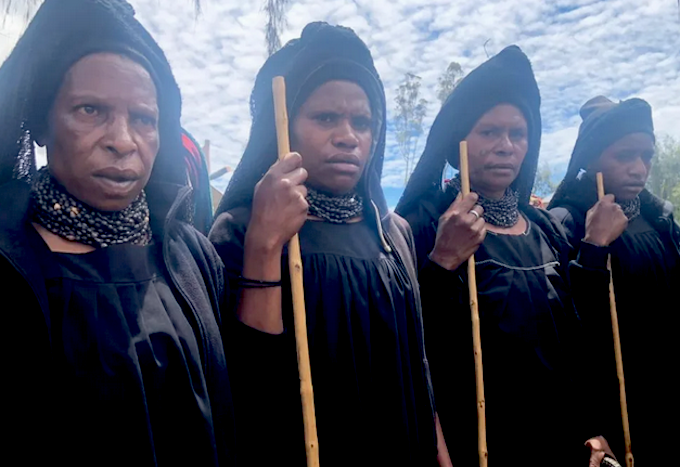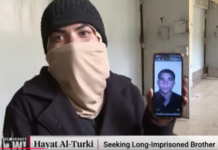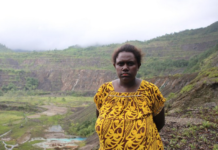
RNZ PACIFIC Q&A: By Don Wiseman,
In Papua New Guinea, sorcery accusation-related violence (SARV) remains a significant form of violence across many parts of the country.
Many of the hundreds of cases that are reported end up before the village court system, which has been the focus of a study by the PNG Institute of National Research in partnership with the Australian National University and Divine Word University.
These institutions looked at the role of the village courts, when dealing with SARV cases, and how it can be improved.
Miranda Forsyth from the ANU’s School of Regulation and Global Governance was one of the researchers involved and spoke with RNZ Pacific’s Don Wiseman about the issues.
Don Wiseman (DW): This matter of sorcery accusation related violence does appear to be getting worse and worse across PNG, and while many of the victims’ cases are being taken to the village courts, this isn’t always working for them?
Miranda Forsyth (MF): That’s right. So first of all, in terms of it getting worse and worse, we actually don’t know. What we do know is that it is a major problem that isn’t going away. There are hundreds of these cases every year. And we know that it is impacting upon different communities in different ways. And it’s traveling into provinces that had never used to be in before. So, for example, in Enga [Province], there weren’t these kinds of cases before about 2010.
We also know that in some places where, traditionally, it was men who were being accused then, now women are being accused there. We also know that children are a growing group of victims of sorcery accusations.
We can also say that it seems that some of the violence has changed as well. There’s a kind of a sexualised violence that’s often used when it’s women who are being accused, but doesn’t tend to have been around as prevalently in the past. So, just to contextualise a little bit, the claims that it’s growing — of course these crimes are very hidden, often the whole community is complicit.
And so people don’t go to the police, they don’t go to the court. And that’s been the case forever, really. We don’t have any good data where we can say, ‘oh, clearly, these are the trends’. But there’s a lot more attention being paid to the issue now, which is fantastic.
It certainly appears from the number of cases that are being reported in the newspapers and that are getting to the formal courts as well, that the numbers are growing. In terms of what happens when people go to see the village courts; what our research has found is that there are both challenges for the village court magistrates and there’s also a lot of really creative responses.
DW: It’s clearly a challenging matter right across the country for officials at every level. But for these village magistrates working largely in isolation, it must be horrendously challenging?
MF: Yes, particularly the village court magistrates who are not really clear themselves about what the law is, who might believe very strongly in sorcery, those are big challenges for them. Often, as well, it’s a village court magistrate against the entire community. So it puts their lives at risk.
We’ve certainly documented a number of cases where village court magistrates have had their house burned down or been chased out of the village when they’ve been trying to act on behalf of the accused and the accused family. It’s quite a precarious position.
What we find is that the village court magistrates are most successful when they can act in coalition with, for example, a sympathetic police officer or a strong religious leader or a strong village leader — a community leader of some sort, when there is support from a strong family member, as well.
All of these things give credibility and help the village court magistrate to manage the case.
DW: There are examples as well, though aren’t there in your research, of magistrates, who clearly believe the accusations of sorcery and end up siding with the perpetrators?
MF: Absolutely. We’ve documented quite a number of those cases where the village court magistrates will require the person who’s been accused to pay compensation to their accusers for having performed sorcery. This is obviously a really problematic outcome for the person who’s been accused, that not only have they been accused, they’ve gone through what can often be horrendous physical violence, but then the justice system actually condemns them further and requires them to pay compensation.
We’ve also documented some cases where the village court magistrates have also been involved in giving beatings to the people who have been accused. There are definitely those cases that are problematic. A number of those, however, were appealed to the higher courts and the higher courts then gave out sentences and issued very clear instructions to say that that was inappropriate. So there is some degree of oversight by those higher level courts.
However, there are certainly village court magistrates who are really trying to be creative in the way in which they’re helping victims of SARV. They are, for example, issuing preventative audits. When it’s the suspicion and talk and gossip going around, and they’re getting on the front foot and they’re saying, ‘we are warning everybody that you are not allowed to take any action against these particular people’. That works better when they’re able to rely upon a police officer to support them.
We also find that some village court magistrates are able to use their mediating functions to really understand what’s going on at the heart of these accusations. Is it really about a fear of sorcery or is it about somebody wanting to take another wife, for example? Or are there land disputes that are really at the heart of this? And they then proactively get involved in mediating those underlying tensions so that the accusations themselves don’t develop any further.
DW: It’s a question largely then of greater resourcing, more education for these people?
MF: A lot of them [the magistrates] don’t have their salary paid on a regular basis. They don’t have regular training. They don’t have supports in terms of oversight by the higher courts. They don’t have police officers that they can call upon to help to keep the peace when they’re holding their meetings. There is a great need for more support for village for magistrates, who are often doing an amazing job against all odds.
DW: What else could be done to improve their lot and improve the lives of sorcery accusation victims?
MF: One of the things that we’ve proposed is that there are creative training materials that are distributed, for example, through people’s smartphones, so that they can refresh their memory, ‘Oh, that’s right. That’s what the law says and these are the different strategies that we can use to address these cases’, short videos, for example, or else just little pads that they can keep in their pocket.
We also thought about the fact that it would be a good idea to facilitate the setting up of direct communication links between village court magistrates and the police and SARV victims so that they can quickly be activated when people are afraid that something is going to go down, then they can step in. Because what we find is that the earlier the intervention is made, the more chance it’s got of being effective.
Once things really get out of control. It’s very hard for anybody to stop it, unfortunately.
This article is republished under a community partnership agreement with RNZ.












































